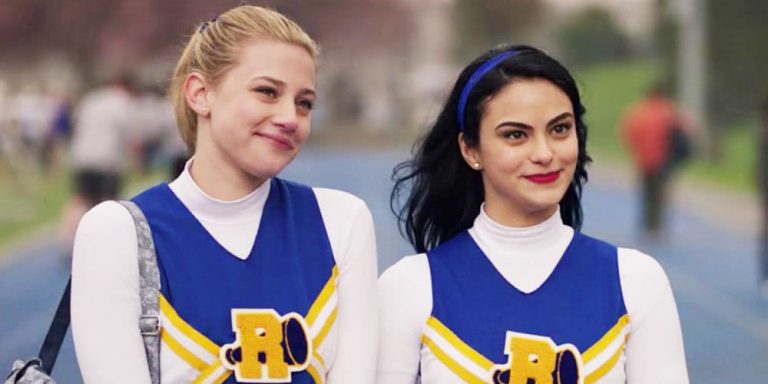There is too much focus on the romantic relationship in film and television these days. Actually, who am I kidding? There has always been too much focus on ‘shipping’ (a viewer’s desire for two characters to get together) and ‘OTPs’ (fandom jargon for ‘one true pairing’). And frankly, I don’t care for it; because the only ship I’m here for is friendship.
Luckily for me, there are plenty of convention-breaking female friendships being portrayed on our screens right at this very moment, notably Elizabeth “Betty” Cooper and Veronica Lodge in Netflix’s Riverdale.
First introduced by Archie Comics in the 1940s, prior to their modern day reboot in Riverdale, the defining characteristic of Betty and Veronica’s friendship has always been their rivalry over the affections of a certain Archibald “Archie” Andrews – the well-intentioned boy next door. And the comic book version of their friendship continued to centre around a man for decades; a man who could simply not make up his mind.
Women coming together instead of constantly arguing over a man really shouldn’t seem like a groundbreaking concept?
Thankfully, Riverdale has made an effort to subvert this. While the idea of a love triangle is first introduced way back in the pilot, when Veronica walks into Pop’s Chock’lit Shoppe, it’s quashed within two episodes. The initial conflict – Veronica kissing Archie at a party – only leads to character growth, and she realises that she no longer wants to be a New York mean girl, instead deciding that maintaining a friendship with Betty was more important than winning over some mediocre hot-boy musician. And likewise, Betty is able to get over her unreciprocated crush, and is later given a new and better-suited love interest, the curious writer Jughead.
Rather than dividing this pairing through repetitive storylines about which one of them belongs with Archie – who, let’s face it, is the absolute worst – Riverdale has chosen to unite them. Together, Betty and Veronica have fought for their rightful places on the cheerleading squad, battled against slut-shaming, helped Betty’s pregnant sister Polly, searched for Jason Blossom’s murderer, saved Pop’s Chock’lit Shoppe, and most recently, worked together to try and uncover the identity of the town’s murderous antagonist, Black Hood. Oh, and mind if I note here that women coming together instead of constantly arguing over a man really shouldn’t seem like a groundbreaking concept?
This is not to say that Betty and Veronica’s friendship has not experienced its own trials, from the disapproval of Betty’s controlling parents, to what could have been the most detrimental development yet, their near-friend break-up. But even that particular conflict came not from their own disagreements, but instead from the Black Hood: Betty found herself manipulated into cutting contact with Veronica after the serial killer threatened her best friend’s life, one more failed attempt by a man to come between these two women.
After all, for all the threats from the Black Hood, and the cruel things that Betty was forced into saying, the friendship between these characters has been shown time and time again as a force to be reckoned with.
Ultimately, Betty and Veronica together are stronger than the sum of their parts.
Ultimately, Betty and Veronica together are stronger than the sum of their parts. Betty’s kindness counteracts Veronica’s catty side, and Veronica’s street smarts have helped Betty out of many a pickle. While both characters are clouded in their own naiveite – Betty’s belief in the justice of morality, and Veronica’s faith in her parents – no other pairing on the show comes close to matching their friendship.
Riverdale may come from source material that is shrouded in sexism and misogyny, and the original Betty Cooper and Veronica Lodge would have been better defined as “frenemies” – but that was the 1940s. Trust me: I can tell you (and I think Riverdale agrees), that there is no man worth breaking up the sisterhood for.
Riverdale is available to stream on Netflix Australia now. Read a review of a South Korean feminist superhero series that’s streamable on Netties here.


































